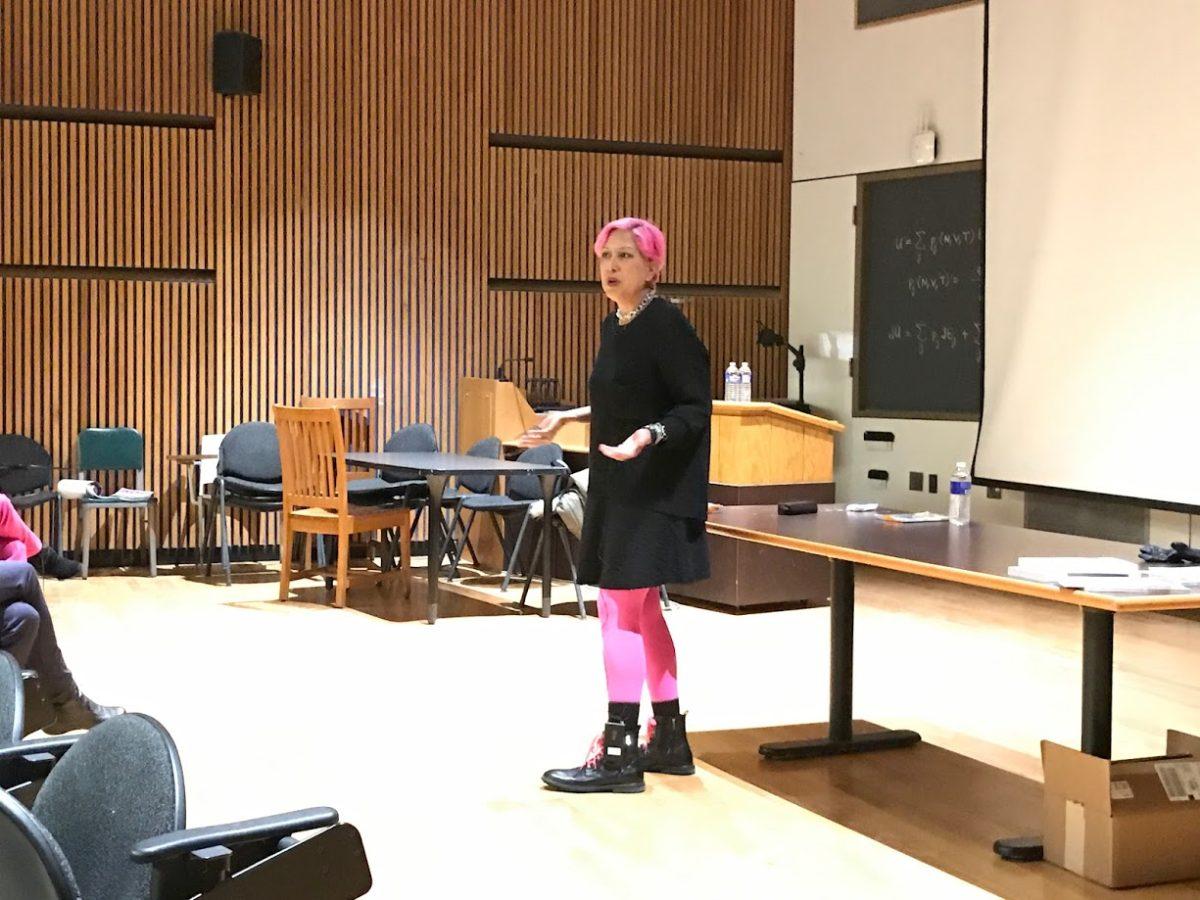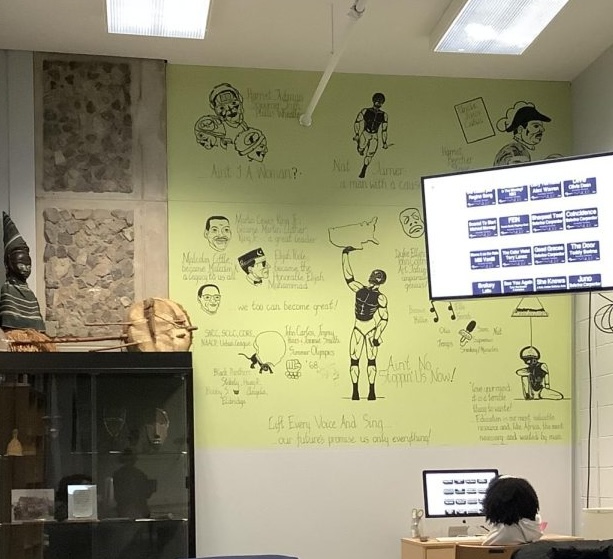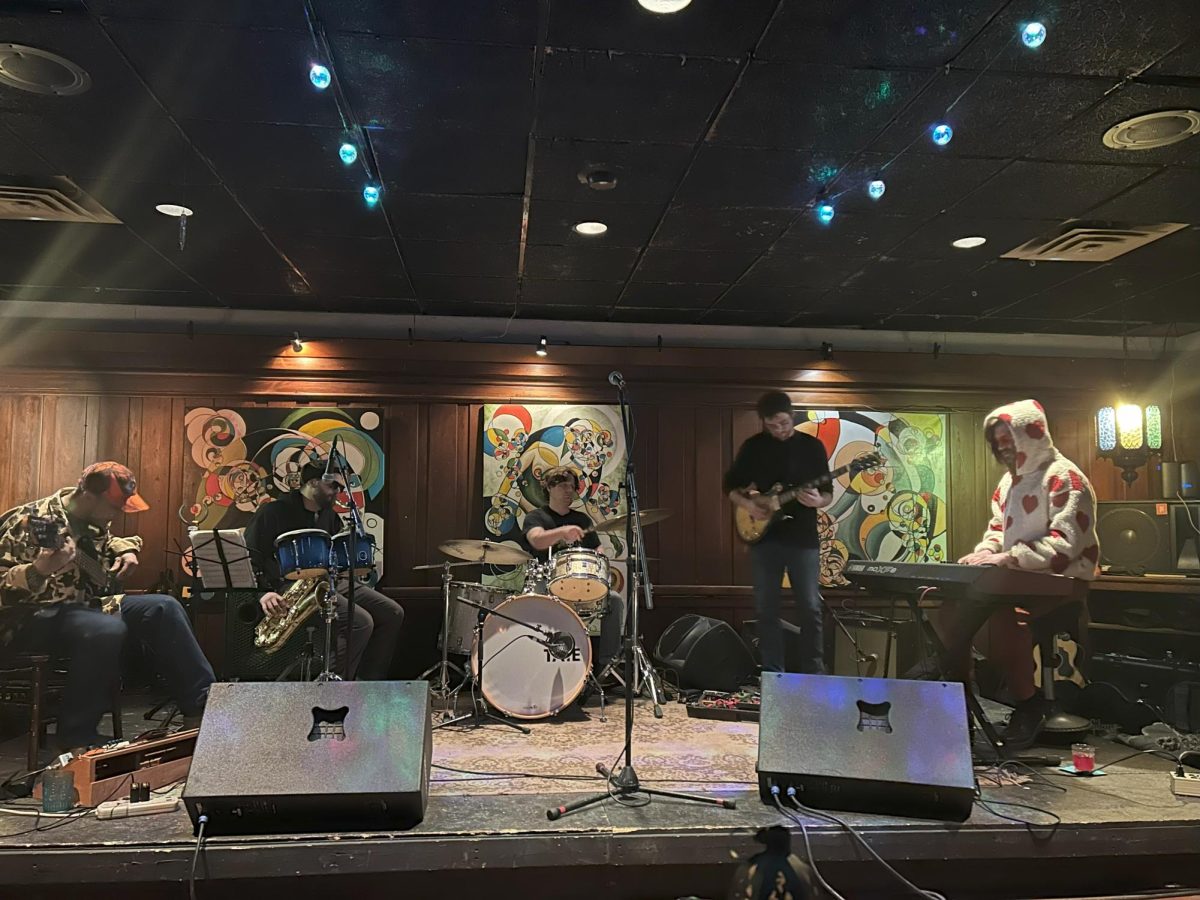In the evening, the halls of Goldwin Smith Hall at Cornell University rarely feature much more sound than a few steps creaking on the wooden staircase, the faint sound of a guitar echoing from headphones, or the whispers of a few students seated in a classroom. But on March 22, an electric guitar echoed down the hallway and up the stairs, while a group yelling the lyrics “white justice, doesn’t work for me” could be heard singing in the HEC Auditorium.
Cornell University hosted Alice Bag, an iconic punk rock musician and author best known for her band the Bags. At the event, Bag performed songs from her time with the Bags and a new song from her self-titled album released last year. In addition, she read several excerpts from her two books, Violence Girl and Pipe Bomb For the Soul.
Bag, 58, is considered one of the most influential figures in punk rock history, as her band pioneered the punk rock scene in Los Angeles in the late 1970s, according to Bag’s website. Bag, whose real name is Alice Armandariz, said she kept “Bag” as her surname after she left the band because everyone she knew continued to refer to her as “Alice Bag.”
Bag said she and her band got involved in the punk scene because it gave freedom to anyone to voice their opinions through music. “It’s [punk music] an open medium, and it’s very friendly to all people,” she said.
As a survivor of domestic violence as a child, Bag said the music she performed with the Bags was a result of suppressed rage from her youth. With the masculine culture of punk rock, she also said her feminism was inspired by her early music.
“As a performer, I was either feminine because Latinas are sexy, or masculine because I was aggressive,” Bag said. “Being on stage, I found I had this rage inside of me, and it stemmed from being a child of domestic violence.”
[slideshow_deploy id=’6855′]
After the Bags disbanded, she went on to perform in the bands Castration Squad, Cholita and Las Tres. Bag later became a teacher in Phoenix, while she also maintained her presence as a vocal activist for feminism, domestic violence and education reform.
While working as a teacher, Bag said she was inspired by her students to become an activist for education reform. Her students also inspired her future work as an author and musician.
“I think my experience with my students helped me grow up,” she said. “When you work with kids, you learn there is a bigger you as part of someone who is helping a child and a community. My students made me think of myself in a bigger way.”
In 2011, Bag published her first book, Violence Girl, a memoir about her time in the Bags and her efforts as a feminist in the punk rock scene. Her 2015 book Pipe Bomb For the Soul was based on her experiences living and teaching in Nicaragua in the 1980’s after the Nicaraguan Revolution.
Bag returned to her music career last year with her first solo self-titled album, which was released on June 24, 2016. The album was well received by music critics, and received a 7.5 from Pitchfork. Alice Bag focuses on themes surrounding feminism, politics and a “coming of age” mindset.
Rocio Anica, a Cornell graduate student, said she admires the issues Bag presents through her music.
“I’ve always really liked punk music, but I love that she’s very intersectional,” Anica said. “Her themes are very much anti-establishment and the way she sings is very confrontational. She seems to just very simply challenge the norm, so I was immediately drawn to her music.”
Judith Peraino, a professor of Musicology at Cornell who is involved with the Feminist, Gender, and Sexuality Studies Program, helped coordinate Bag’s visit, and said Bag is an integral part of the discourse among Cornell’s punk community.
“I teach about punk and feminist issues, so I use her performances to think about the whole sexuality and gender aspect of punk performance,” she said. “Many of the things she talked about today I use in my classes.”
While Bag has drifted away from a consistent musical presence, she said music is still her primary creative outlet.
“Music really isn’t a choice. It finds me even if I try to run away from it,” she said.













